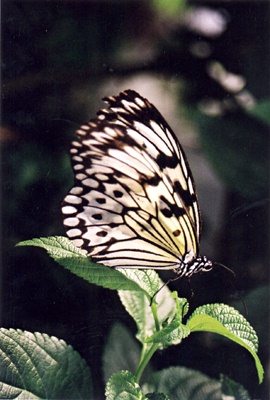All Nonfiction
- Bullying
- Books
- Academic
- Author Interviews
- Celebrity interviews
- College Articles
- College Essays
- Educator of the Year
- Heroes
- Interviews
- Memoir
- Personal Experience
- Sports
- Travel & Culture
All Opinions
- Bullying
- Current Events / Politics
- Discrimination
- Drugs / Alcohol / Smoking
- Entertainment / Celebrities
- Environment
- Love / Relationships
- Movies / Music / TV
- Pop Culture / Trends
- School / College
- Social Issues / Civics
- Spirituality / Religion
- Sports / Hobbies
All Hot Topics
- Bullying
- Community Service
- Environment
- Health
- Letters to the Editor
- Pride & Prejudice
- What Matters
- Back
Summer Guide
- Program Links
- Program Reviews
- Back
College Guide
- College Links
- College Reviews
- College Essays
- College Articles
- Back
Disappearance of Species
Everyday thousands go to the zoo, see that koala bear or that cheetah, and have all heard those little girls go “aw, they’re so cute!” It is also everyday that these not only cute, but incredible and beautiful creatures are slowly disappearing in front of our eyes.
We’ve already recently witnessed the extinction of the Kihansi spray toad and thousands of other animals have gone extinct. However, unlike the dinosaurs that died from change in temperature, or a meteorite, or whatever scientists believe in; the extinction of species in today’s day and age is due to none other than us- humans. We’ve burned the forests, cut down the trees, polluted the waters, and bought the furs and skins of these “cute” animals. Sooner or later the only place we’ll be able to see these animals will be in our local zoos.
Various cat and bear species, elephants, fish and bird species and even plants are showing up on the International Union for Conservation of Nature Red List yearly and it isn’t long before many of them become extinct. Many believe the extinction of animals in the 21st century is still natural, even when it has been said that extinction rates are 1000 to 10 000 times higher now than ever before. (http://science.jrank.org/pages/2467/Endangered- Species.html). As the world population increases, so do extinction rates. Before we lose animals such as the black rhino whose population has been rapidly decreasing because of hunters or the famous panda who is endangered due to loss of habitat and hunting and who is also the symbol of the World Wildlife Fund, we need to learn how to live sustainably. Sustainability means to live in a way that doesn’t disturb the environment and doesn’t affect future generations. Although it’s hard to change the way society has learned to live, it isn’t hard to change something you do personally. You can stop purchasing clothing made from animal fur, limit your food intake since most Americans eat over 2500 calories daily, and even simply recycle to reduce the need to cut down forests. If many were to follow these steps, not only will it benefit you, it’ll benefit the environment and most importantly the species that are desperately fighting to stay alive. Fewer animals will be hunted for fur and food, there will be a decrease in the horrific trend of overfishing around the world, and animals will have the opportunity to keep their habitat without interference.
Although many organizations such as the World Wildlife Fund and the Union for Conservation of Nature are doing the most they can to assist in the survival of endangered species, it isn’t always enough without assistance from others. If people and more importantly companies and factories who are creating most of the pollution, oil flowing into the river, and cutting of trees, don’t make a change, then our future generation might not have the opportunity to see the panda, Siberian tiger, or koala bears.

Similar Articles
JOIN THE DISCUSSION
This article has 0 comments.
